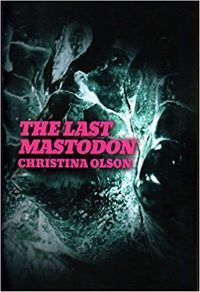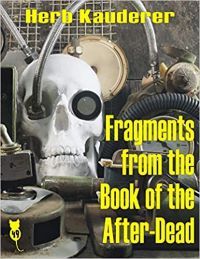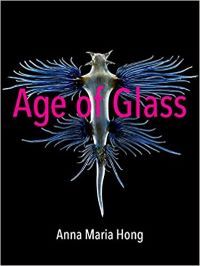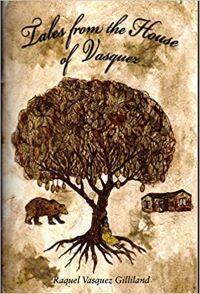
2020 Elgin Award Chapbook Winners and More Specpo in Small Doses
The 2020 Elgin Awards through the Science Fiction and Fantasy Poetry Association has two categories. On International Speculative Poetry Day at the beginning of November (the third, to be exact), we saw the full-length poetry collections that won. The other category is chapbooks. Chapbooks are more compact, so winning an award in this category means there’s a whole lot of greatness in a very short book. Dive into the realm of speculative poetry with these shorter reads that won this year’s Elgin.
The Book of Fly and Other Poems by John Philip Johnson
Johnson’s website touts The Book of Fly and Other Poems (first place) to be “Graphic poetry, like Twilight Zone episodes. 48 Pages + cover. Color. Enjoyed by people who usually don’t like poetry.” It definitely is a refreshing perspective on poetry. The pages show the successful results of collaborative efforts. Illustrators teamed up with the poet for this award-winning creation. The poetry has an interesting tone in that it can be creepy but also incredibly logical. Here’s a bit of it:
“1:1 Feeding on the living is good, / but feeding on the dead is better. / . . . // 1.6 If you land on the wrist that holds the swatter, consider yourself lucky, not clever. / . . . // 1.8 You only have a few days; stay simple. / . . . // 2.2 know that it is the honor of a fly, / it is its purpose, / to die.”
What began as a Kickstarter became an incredibly unique collection.
The Last Mastodon by Christina Olson
Max the Mastodon is a figure from the Ice Age put back together by the folks at the Western Science Center in Hemet, California. He’s also part of the inspiration for Olson’s The Last Mastodon (second place). This chapbook explores science through fossils. Then it shows the connection between science and history. Then it connects history to ownership and identity. These themes are all intertwined. One of my favorite pieces is a prose poem entitled “How To Care For Your American Mastodon.” Here’s a bit of it:
“Like you, it will learn to navigate. Or it will die. . . . Always wash your hands before (and after) handling your mastodon. . . . If you have more questions about your mastodon’s health, talk to a veterinarian familiar with mastodons.”
The collection is clever in this way and also informative and, like, deep. Here’s a bit of the more profound from “Self-Portrait as Mastodon Remains.”
“the skull has been punched once twice / eleven thousand years later, the paleontologist / fits another tusk into the holes & sees / what damage the mouth can wreak / once upon an epoch, one mastodon bleeds out.”
You’ll never look at fossils, particularly mastodons, in the same way.
Fragments from the Book of the After-Dead by Herb Kauderer
Clearly, Kauderer’s collection deals with life and death, but mostly what he calls “after-dead.” Fragments from the Book of the After-Dead (third place) develops a truly science fiction feeling. The tone is that hard science fiction, the one you may get from Stanislaw Lem’s Solaris. Some define science fiction is an unreal world presented as real and authentic, posing a what-if scenario. From the very beginning, that’s what this collection does. Here’s a short bit:
“Transition to afterlife cannot be completed without / a sentient witness to resolve all quantum states of / a soul moving from one plane to another… / The failure to develop artificial intelligence / haunts us all.”
You don’t have to wait until next November. Speculative poetry appears at any time of year. If you finish with these winners, you can move onto nominees from both full-length and chapbook categories. While the winners list reflects the top three picks, even just this small piece of the nominee list reflects the range of voices of writers from all walks of life with different approaches to specpo.
Age of Glass by Anna Maria Hong
If you like your specpo in traditional form, Age of Glass unfolds in sonnets. If you like renewed versions of old tales, this collection does that with carefully crafted lines. Because sonnets rely on sound and meter, the rhythm of poem after poem can lull you in from start to finish.
Tales from the House of Vasquez by Raquel Vasquez Gilliland
This collection is a Rattle chapbook prize winner. The poems in Tales from the House of Vasquez fall into the part of specpo that deals with illness and affliction. These poems emerged after the author emerged from mental and emotional trauma with questions about why and how. The questions and answers come through poems with a tone of folklore storytelling.
The Octopus Museum by Brenda Shaughnessy
If octopuses ruled the world, would it be a better place? Would the horrors of social, racial, and environmental injustice disappear? Maybe. The exhibits poetically described in The Octopus Museum suggest that a post-apocalyptic world where cephalopods rule could be the answer.











